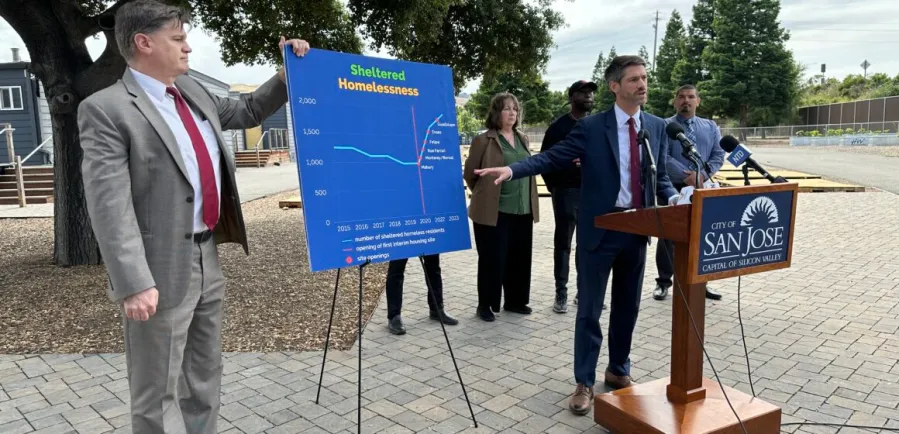An inquiry has raised alarms regarding mold and wage violations at a $70 million housing project for the homeless in San Jose

There are fresh concerns regarding the state of a $70 million project for homeless individuals in San Jose. A labor union investigation has revealed the presence of mold in the project and allegations of wage theft.
The three-story modular housing project on Branham Lane was scheduled to open in April but has been delayed, with the opening now expected in the summer. Once completed, it will feature 204 rooms with private bathrooms and kitchens, making it the largest temporary housing site for the homeless in San Jose.
According to a report from San Jose Spotlight, a trade union investigator found mold in the modular buildings and alleged that workers were not paid the prevailing wage. “I followed up on my investigation and based on that I found there were various code issues and mold on the project. The workers were cheated out of their fair wages; they were committing wage theft,” stated Mauricio Velarde.
Devcon serves as the general contractor for the project. Company president Gary Filizetti strongly denied any wage theft allegations, asserting that workers will be paid correctly. He also stated that Devcon is working to address the mold issue.
Subcontractor VBC constructed the modular units at its factory in Tracy. In a statement, company CEO Vaughan Buckley stated, “All workers onsite are receiving prevailing wage rates based on their respective crafts.”
He also confirmed that all modules were transported to the site without any water damage.
Furthermore, the company clarified that the mold was found in a laundry facility, not a housing unit, and has since been remediated.
The majority of the project’s funding came from the state, with an additional $10 million contributed by San Jose.
In response, Mayor Matt Mahan stated, “I anticipate our code enforcement department will ensure that all units in this new rapid-build project are safe, clean, and respectful.”
He also mentioned that the city structures development contracts for public projects to guarantee that workers are paid appropriately for their work, and if any workers are owed money, the funds are available to rectify the situation.
Despite these assurances, Velarde remains apprehensive. “They are bringing them in from the valley, paying them half the wages,” he said. “It’s unconscionable.”
Upon completion, the project is expected to accommodate 612 individuals.

